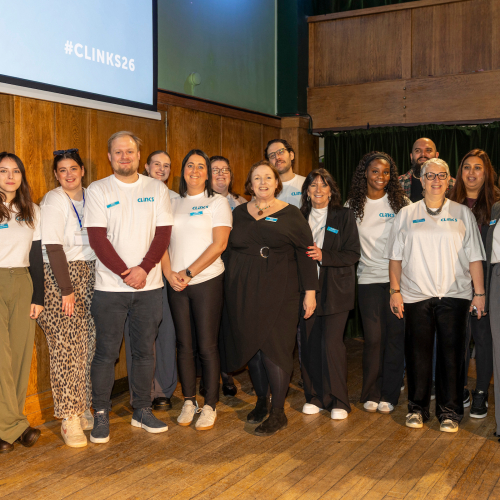In the couple of years since I first became involved in work around health in the justice system for Clinks, I've been encouraged to hear many wonderful stories of the difference good health and care services can make for people in the Criminal Justice System. From individual staff going the extra mile, like the GP who volunteered as a link person to coordinate many different services for a woman with multiple needs; to voluntary sector organisations working hand in hand with local health services to provide flexible, holistic support for the people who need it most; and to the many peer support projects which create opportunities for people in the Criminal Justice System to build confidence and a new identity through caring for others.
 The good, the bad and everything in between
The good, the bad and everything in between
On the other side, I've sadly heard some horrendous stories about the way people in the Criminal Justice System are treated (or not) by the health services which should be there to help them. Stories of a man given a routine eye test in prison, which failed to spot that he was blind in one eye; of a disabled man with both his legs amputated being handcuffed with an escort chain on his way to hospital; of 8 month waiting lists just to get an assessment for mental health services; or of a GP on release who refused to believe his patient had been diagnosed with a severe mental health condition while in prison, and so discontinued his medication. Stories which should never have happened.
We know that people in contact with the Criminal Justice System on average have greater health needs, and poorer health outcomes, than the general population. Almost twice as many people in prison are estimated to have a disability than in the population as a whole. 15% of men and 25% of women in prison report symptoms of psychosis, compared to just 4% of the general public. Nearly a third have a learning disability or difficulty, and around 80% smoke compared to 24% of the general population. Despite these high levels of need, they are less likely to access mainstream health services, and when they do may have to overcome stigma and other barriers to accessing the care they need.
A piece of the jigsaw
The Care Quality Commission (CQC) is the independent regulator for health and social care services in England. This means they register, monitor and inspect all health and care services, including those in prisons and secure settings, to make sure they meet minimum standards of care. They can identify good practice, make recommendations for improvement and, where needed, take action to protect people using those services.
CQC's mission is to ensure outstanding care for everyone, and understanding the views and experiences of people using health and care services is an important part of this. They are especially keen to hear from those whose voices are less often heard, including those in contact with the Criminal Justice System and their families.
Clearly, CQC inspections are not the whole answer to these challenges. Healthcare for people in the Criminal Justice System is affected by a whole range of different things - commissioning decisions, austerity, lack of co-ordination between services, and prison regimes, to name just a few - which are beyond CQC's remit or control. But they are one piece of the jigsaw.
Sharing your stories
By taking the time to share what you know about health and care services in your area, you can help CQC build up a picture of what 'good' care could look like for the people you work with, and hold services to account for providing it. You can contact them online, by email, by phone or in writing.
All those positive stories prove that fantastic care is possible; but it should be the norm. So next time you're banging your head against a brick wall because a service has let your client down - or cheering as a doctor, a nurse, a psychiatrist or a care co-ordinator, goes out of their way to give them the care they need - pass this information on to the Care Quality Commission.
What's new
Blogs
GUEST BLOG: #Clinks26 - Understanding the Impact of Lived Experience at My First Clinks Conference
Publications
Latest on X
The role is for a leader from an organisation focused on racially minoritised people, with expertise in service delivery, policy, advocacy, or related areas in criminal justice. Racial disparities are present at every CJS stage. This role ensures these voices are central in shaping policy to help address and eradicate them. Apply by Mon 18 Nov, 10am. More info: https://www.clinks.org/voluntary-community-sector/vacancies/15566 #CriminalJustice #RR3 #RacialEquity

